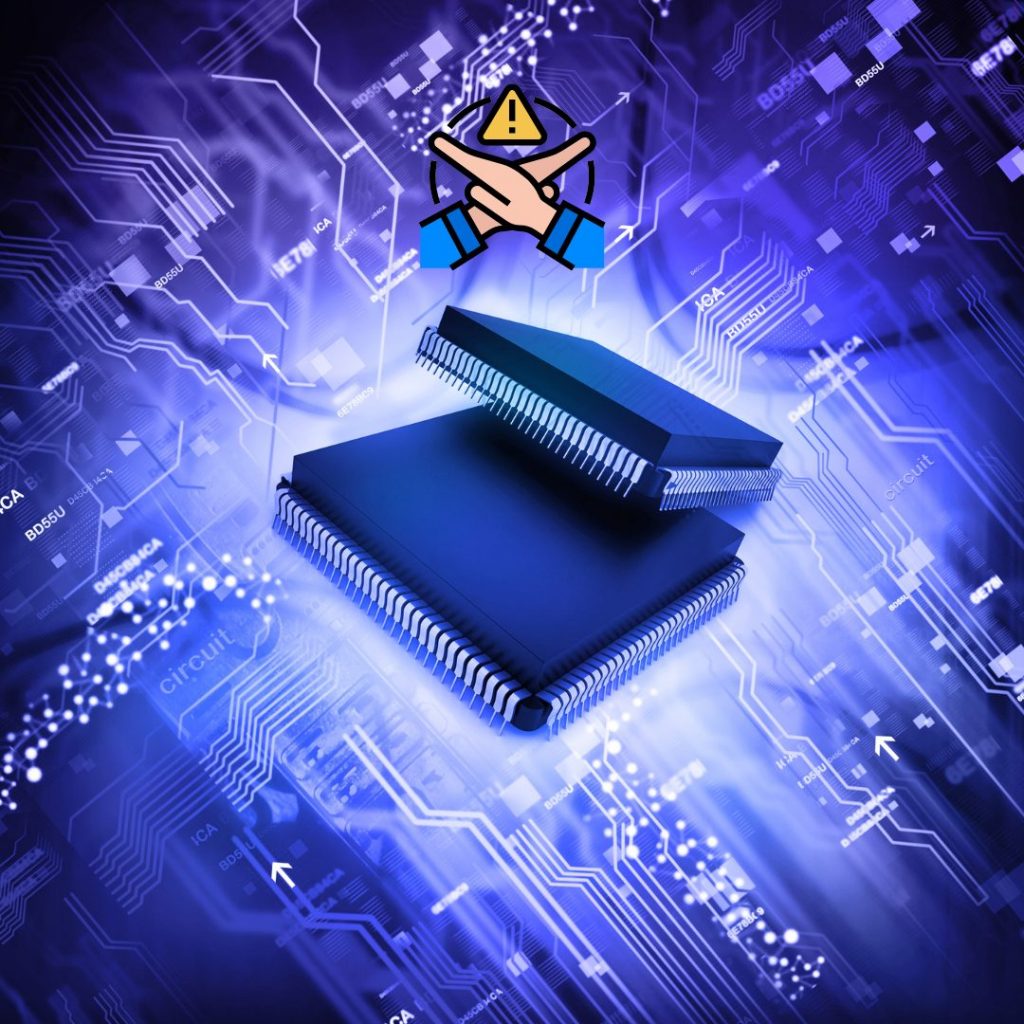Amanat Kaur
SEO Specialist who loves to write about SEO, blogging, and WordPress.
What’s New Taiwan Semiconductor Manufacturing Corp. (TSMC) has discontinued production of sophisticated AI chips for Chinese clients. This ban, which goes into...

Image Credits: canva
Taiwan Semiconductor Manufacturing Corp. (TSMC) has discontinued production of sophisticated AI chips for Chinese clients. This ban, which goes into effect on November 13, applies to designs that use 7 nm or smaller manufacturing methods. Companies such as Alibaba, Baidu, and Tencent are affected. To prevent military usage, TSMC now requires consent from the US government for such manufacture.
The US Department of Commerce has ordered TSMC to halt semiconductor shipments to China. This decision followed the discovery of TSMC chips in Huawei’s AI systems, which violated previous limitations. TSMC must comply since it relies on American-made manufacturing equipment. Taiwan’s economic ministry affirmed compliance with international and domestic standards.
Advanced circuits, such as Nvidia’s A100 and H100 GPUs, are built with 7, 5, or 3 nanometer processes. These methods allow for more transistors per silicon area, increasing processing speeds, which is crucial for AI. TSMC, despite being situated in Taiwan, employs equipment manufactured in the United States, making it subject to US export rules.
Alibaba, Baidu, Huawei, Tencent, and ByteDance all have hurdles in procuring sophisticated chips. They may need to redesign or find alternative suppliers. Domestic options, such as Semiconductor Manufacturing International Corporation (SMIC), are not yet capable of large-scale manufacturing at 7 nanometers or lower.
Other manufacturers, like as Samsung and Intel, can produce advanced processors but are subject to U.S. limitations. This limits the possibilities available to Chinese enterprises. The US-China chip conflict began in 2020 and has since worsened. Measures like the CHIPS Act seek to improve the US chip sector and lessen reliance on Taiwan.
TSMC is a key player in the worldwide AI chip race. While TSMC is unlikely to suffer losses, Chinese companies must adapt. The limits may prompt China to accelerate its domestic chip production efforts. A breakthrough in chip fabrication could change the global AI development landscape.
Despite the difficulties, China has been resourceful in overcoming earlier prohibitions. The battle to build superior AI chips manufacturing will have a substantial impact on worldwide AI research and technology.
Suggested Articles
The UK Government is Investigating a Potential Social Media Ban for Children
Big Tech Companies are Turning To Nuclear Energy to Power Their AI Goals